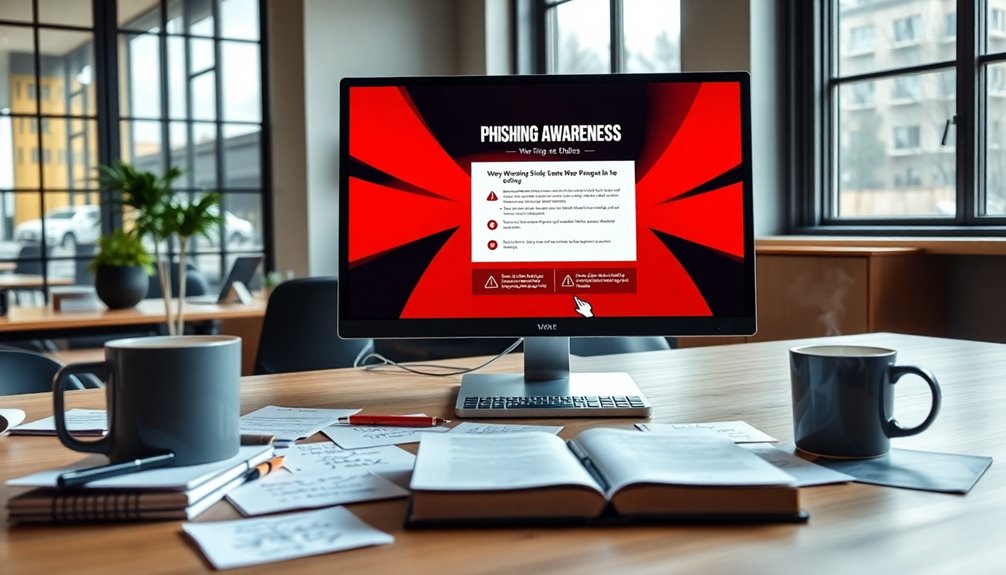To write a polite and effective cancellation email, start with a clear subject line indicating the purpose. Use a friendly greeting and get straight to the point by stating your cancellation. Apologize for any inconvenience and, if appropriate, provide a brief reason. It's helpful to offer alternatives or suggest rescheduling to show you value the recipient's time. Always maintain a courteous tone throughout and make sure to proofread for clarity. Ending with a professional sign-off can enhance your message's effectiveness. Plus, there's more you can learn about crafting the perfect cancellation email to maintain those important relationships.
Key Takeaways
- Use a clear subject line such as "Appointment Cancellation Notice" to convey the purpose immediately.
- State the cancellation clearly in the opening lines, providing necessary details without excessive information.
- Express regret for the inconvenience and, if appropriate, offer a brief explanation for the cancellation.
- Suggest rescheduling options or alternatives to show consideration for the recipient's time and maintain the relationship.
- Conclude with a polite closing statement and ensure your email is free of errors for professionalism.
Introduction

Finally, conclude your email by inviting them to discuss rescheduling our meeting or exploring alternative options.
This keeps the lines of communication open and shows your willingness to find a solution together.
With these tips, your cancellation email can be both polite and effective.
Maintains Professional Relationships

Maintaining professional relationships is essential in any work environment, and a timely cancellation email plays a crucial role in achieving that. When sending cancellation emails, it's important to apologize for any inconvenience your cancellation may cause. A professional tone throughout your message helps reinforce your commitment to the relationship, even in challenging situations.
Including a brief explanation for the cancellation can foster understanding and trust, showcasing your genuine regret over the need to cancel. Additionally, consider providing alternatives or offering rescheduling options. This not only demonstrates your consideration for the recipient's time but also helps keep the lines of communication open.
When you request confirmation of the cancellation, you emphasize the importance of the recipient's acknowledgment, which nurtures your professional relationships. By taking these steps, you show that you value the other party's time and effort, regardless of the cancellation.
This approach can turn a potentially negative situation into an opportunity for maintaining goodwill. Ultimately, a well-crafted cancellation email can preserve, and even strengthen, your professional relationships, ensuring effective collaboration in the future.
Empathetic Tone Throughout Message

An empathetic tone is often crucial when crafting cancellation emails, as it can significantly soften the impact of the news. When you apologize for any inconvenience caused, you show that you understand the recipient's time and effort. This consideration enhances the professionalism of your communication. Additionally, being aware of communication breakdowns can improve the effectiveness of your message.
Make sure to use polite language and acknowledge the recipient's situation throughout your message. This approach helps mitigate misunderstandings and promotes a more positive interaction, which is vital for maintaining relationships for future engagements. Including a brief explanation of the circumstances surrounding the cancellation adds transparency and respect. It helps the recipient feel valued and understood. Moreover, being aware of how children's emotional needs can be impacted by unexpected changes highlights the importance of your considerate approach.
Additionally, offering alternatives—like rescheduling or providing additional support—reinforces your empathetic approach. Let them know you're committed to their satisfaction, even in the face of a cancellation notice. Ensure your email has a clear subject line that indicates the cancellation while maintaining a polite tone. By emphasizing these important details, you can effectively convey your message while fostering goodwill, even in less-than-ideal situations.
Step-by-Step Guide to Crafting Emails

Crafting a cancellation email doesn't have to be daunting; just follow a straightforward process to ensure clarity and professionalism.
Start with a clear subject line, like "Appointment Cancellation Notice." This immediately informs the recipient of your email's purpose.
Begin your email with a polite greeting, personalizing it to the recipient. Next, state your intention to cancel the appointment clearly in the first sentence to avoid confusion.
If appropriate, briefly provide details about the reason for the cancellation. Keeping the communication concise helps maintain effective newsletter creation standards. Additionally, consider how child support obligations can be affected by missed appointments, as regular check-ups are essential for maintaining good oral hygiene. Remember that attention to detail is key when crafting these communications to avoid any misunderstandings.
Be sure to express your regret and apologize for any inconvenience this may cause. This shows that you value the recipient's time and effort.
If you wish to reschedule the appointment, mention that in your email as well. This gives the recipient the option to continue the conversation.
Additionally, ensure to maintain user consent management with your communication, as it reflects your respect for the recipient's preferences and privacy.
Dos and Don'ts for Cancellations

When it comes to cancellations, knowing what to include and what to avoid can make all the difference. First, you need a clear cancellation email subject that quickly indicates the purpose, like "Appointment Cancellation Notice – [Date and Time]." This sets the right tone from the start.
Next, keep it concise. Don't include excessive details or excuses; focus on the cancellation itself. While you should express empathy and apologize for any inconvenience, avoid overly lengthy explanations. This shows respect for the recipient's time.
Always offer alternatives or next steps. Suggest rescheduling options to maintain a positive relationship and keep the door open for future interactions. This demonstrates professionalism and a willingness to accommodate.
Lastly, don't forget to proofread your email before sending it. Eliminating errors ensures clarity and reflects your professionalism in the communication.
Examples of Subscription Cancellations

Incorporating these elements into your subscription cancellation email won't only make the process smoother but also leave a positive impression.
Pro Tips for Writing Effective Emails

Five essential tips can help you write effective emails that convey your message clearly and professionally. Start with a clear subject line that immediately indicates the purpose, like "Meeting Cancellation – [Date/Time]." This sets the right tone from the get-go.
Next, use a polite greeting and maintain a respectful tone throughout your email. This fosters goodwill, even when delivering unfortunate news.
Clearly state the cancellation early in the email to avoid confusion, and provide a brief reason if it's appropriate—just keep it simple and avoid excessive details. This is especially important for maintaining business credibility in professional communications.
Don't forget to suggest alternatives or next steps, such as rescheduling or offering assistance. This shows you value the recipient's time and are willing to accommodate their needs.
Lastly, always proofread your email before hitting send. This ensures clarity and professionalism, allowing you to present a concise message that reflects your respect for the recipient.
Final Thoughts

Writing a cancellation email can be challenging, but keeping a few final thoughts in mind can make the process smoother.
First, always start with a clear subject line. This ensures the recipient understands the purpose immediately.
Next, maintain a respectful tone throughout your email. This demonstrates professionalism and consideration for the recipient's time.
Be sure to state your cancellation at the beginning of the email, and if appropriate, provide a brief reason. This clarity helps avoid misunderstandings.
Additionally, it's beneficial to offer alternatives, like rescheduling, to show your willingness to continue the relationship despite the cancellation.
Don't forget to proofread the email before sending it. This step is crucial to ensure effective communication and to minimize any potential misunderstandings.
A well-crafted email reflects your commitment to professionalism and respect for the recipient.
Frequently Asked Questions
How to Write a Polite Cancellation Email?
When you need to write a polite cancellation email, start with a friendly greeting using the recipient's name.
Clearly state the cancellation at the beginning to avoid any confusion.
Express your regret for any inconvenience this may cause, showing empathy.
If possible, suggest alternatives or next steps to keep communication open.
How Do You Say Cancel in a Polite Way?
When you need to cancel something, it's important to be polite. You might say, "I regret to inform you that I need to cancel" or "Unfortunately, I must cancel."
Acknowledge any inconvenience by adding, "I apologize for any inconvenience this may cause."
Always express gratitude, like saying, "Thank you for your understanding."
If possible, offer to reschedule, stating, "I'd be happy to find another time that works for both of us."
What Are Good Cancellation Emails?
Good cancellation emails clearly state your intention to cancel right at the start.
You can include a brief, polite reason to maintain a positive tone. Offering alternatives, like rescheduling, shows you value the recipient's time.
Make sure to use a clear subject line, such as "Appointment Cancellation Notice," so they know the purpose immediately.
Don't forget a professional sign-off and ask for confirmation of receipt to ensure they acknowledge your cancellation.
How Do You Say Cancel Professionally?
When you need to say cancel professionally, start with a clear subject line that reflects the cancellation.
Open with a polite greeting and state the cancellation right away to avoid confusion.
If appropriate, briefly explain the reason, but keep it concise.
Always express regret for any inconvenience you may cause.









